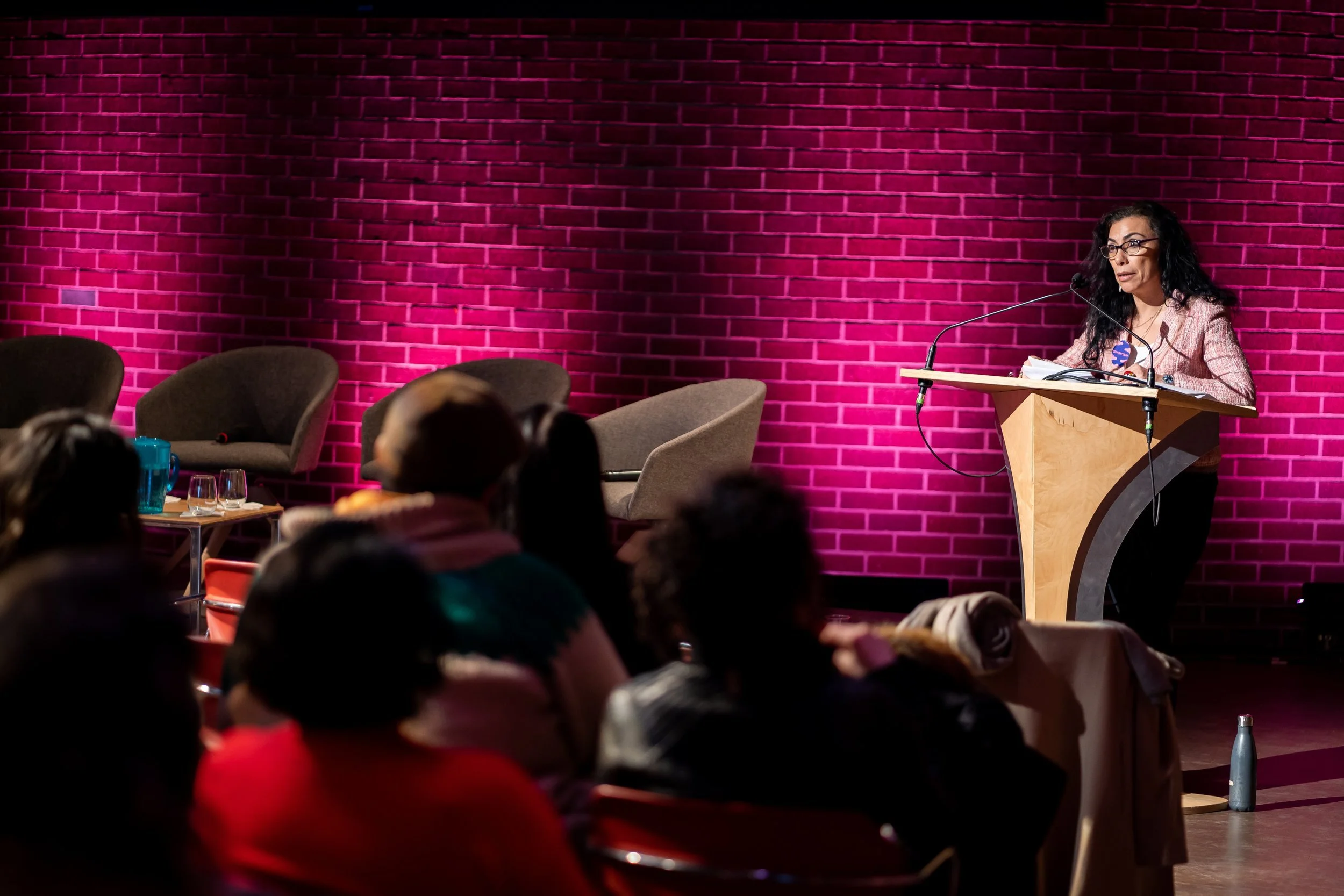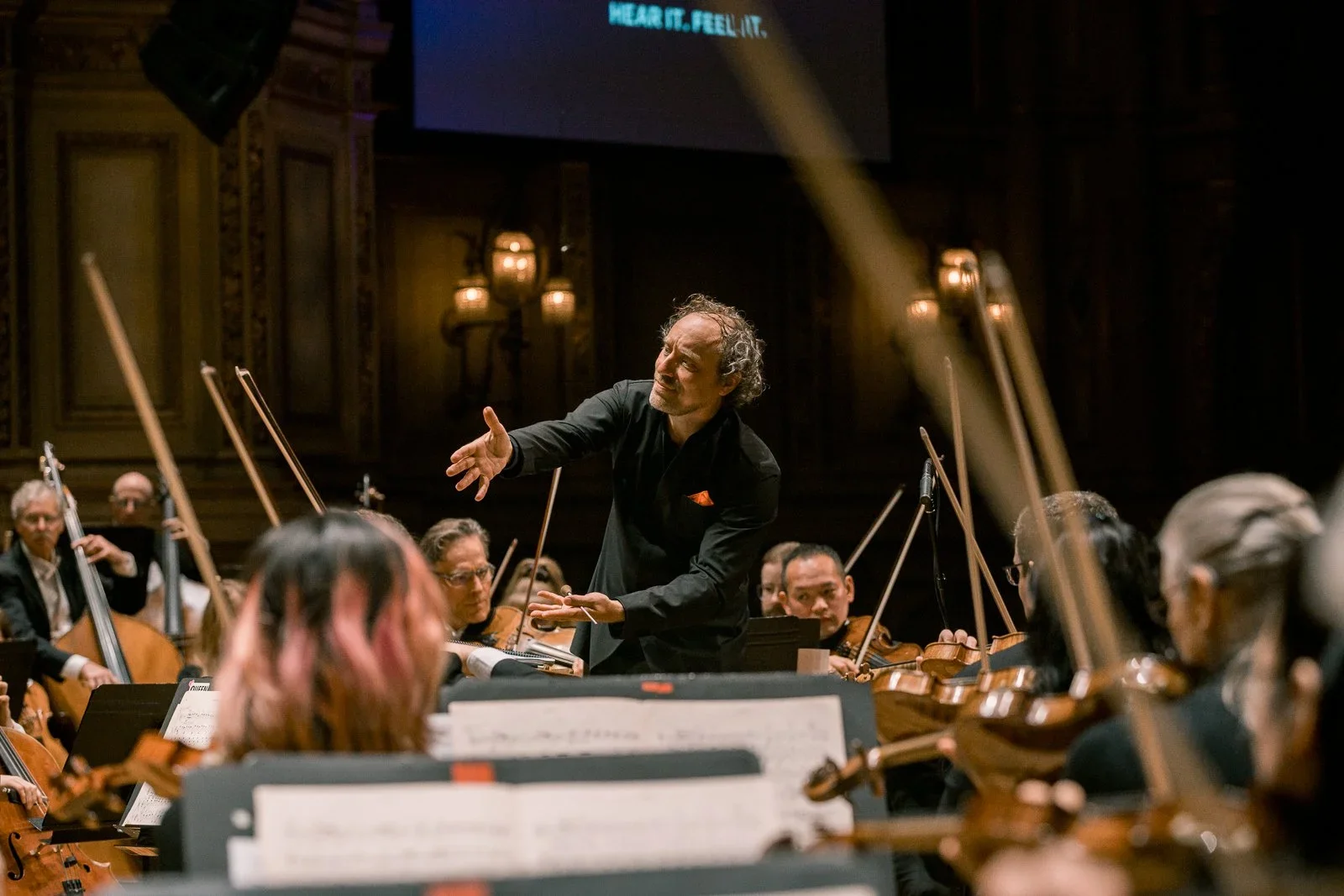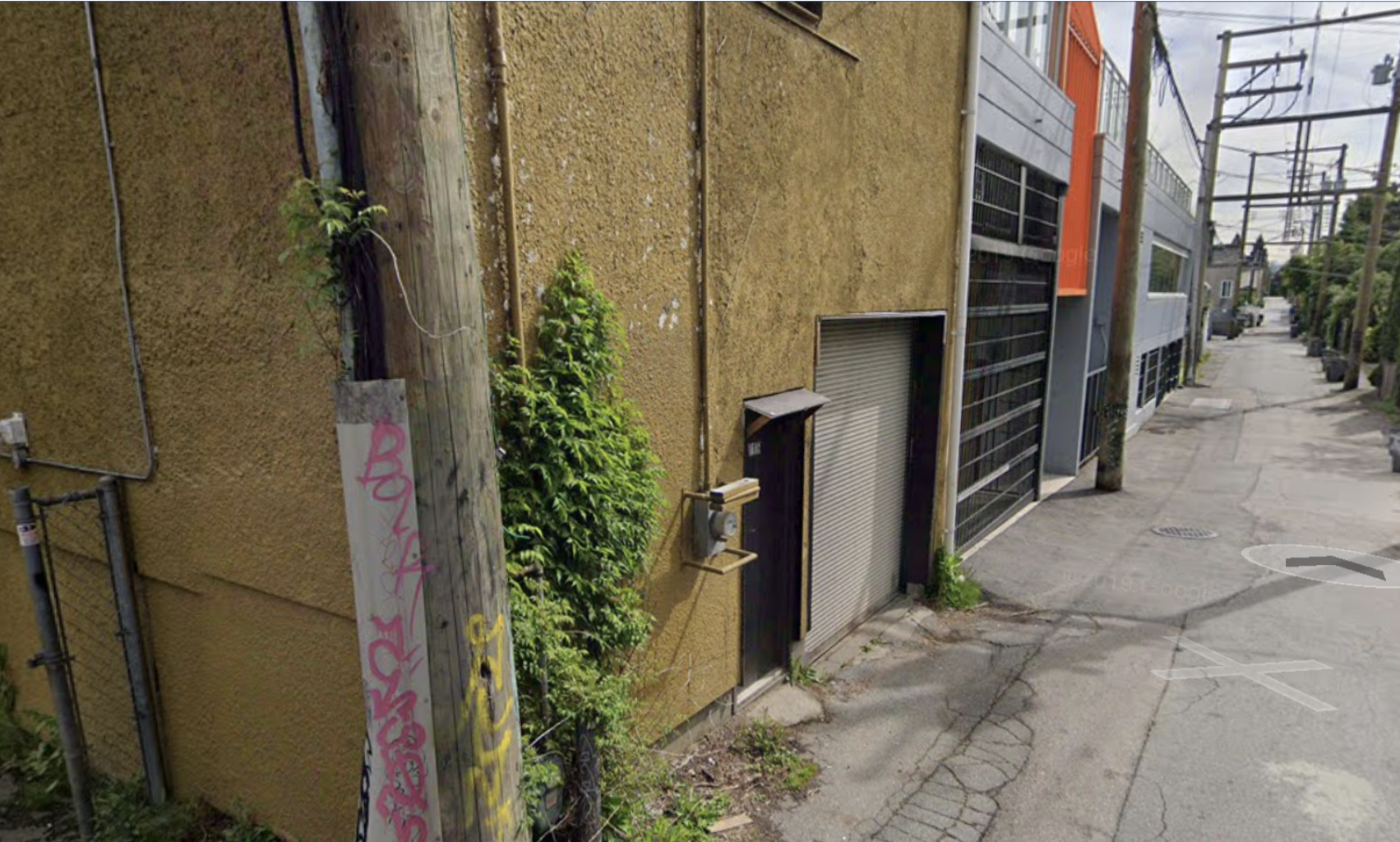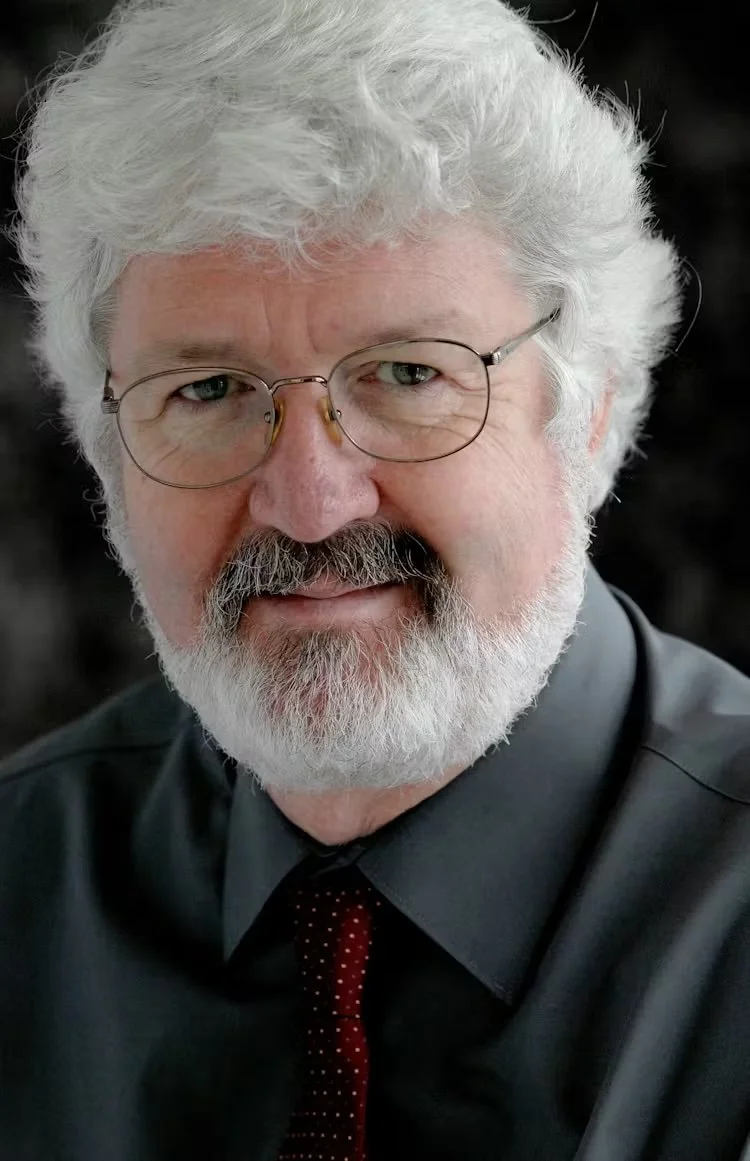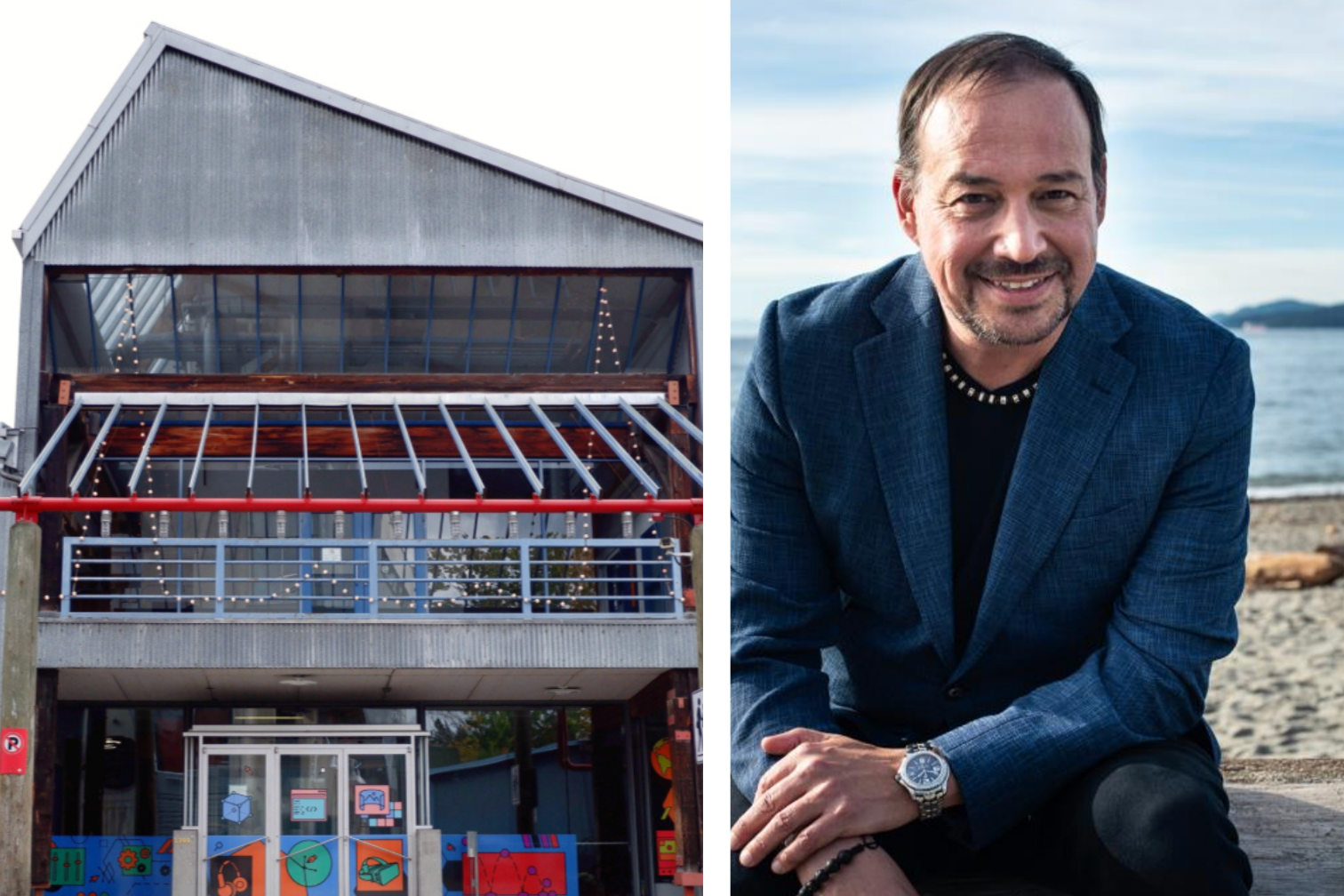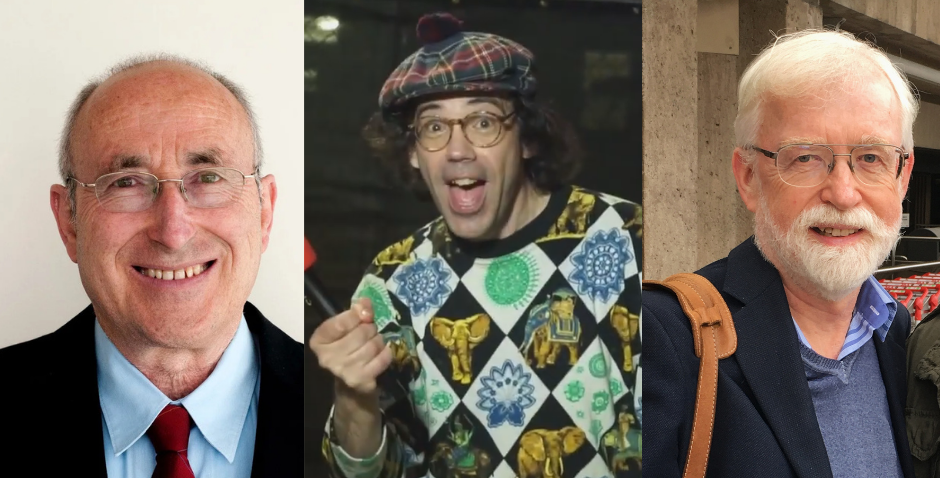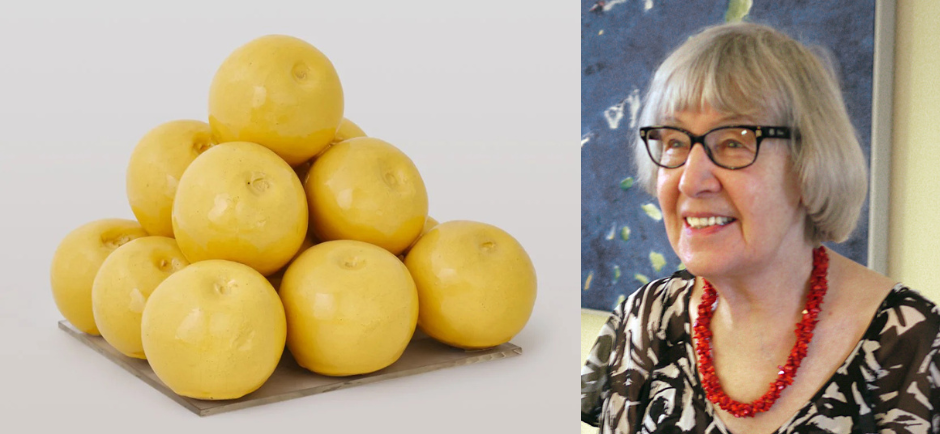Canada's Latinx theatre artists converge and converse for Coyuntura, in Vancouver April 15 an 16
CALTAC founding board member Alexandra Lainfiesta says this year’s focus is self-identification amid an incredibly diverse community
Photo by Colton Curtis.
Carmen Aguirre speaks at the inaugural 2020 Coyuntura. Photo by Brandon Law
Canadian Latinx Theatre Artist Coalition and SFU Woodward’s Cultural Programs present Coyuntura on April 15 and 16 at SFU Woodward’s Goldcorp Centre for the Arts
LATINX THEATRE ARTISTS from across the country will converge at SFU Woodward’s Goldcorp Centre for the Arts this weekend in the second Coyuntura.
Presented by the Vancouver-based Canadian Latinx Theatre Artist Coalition, and the only event of its kind in the country, it’s a lively two-day symposium of workshops, pitch sessions, and general-assembly circle talks. Not to mention dance breaks.
As Vancouver-based actor Alexandra Lainfiesta, one of CALTAC’s original founders. puts it: “It’s important to balance all that dialogue and discourse with movement and dance and celebration.”
It’s hard to believe the national coalition and its national event had their roots in a spontaneous meeting over coffee at the Drive’s Cafe Calabria about six years ago. Lainfiesta remembers that gathering of local theatre artists was prompted by the problem of non-Latinx actors taking on Latinx roles, and by the lack of new play development and programming of work from their community.
“We were talking about the importance of having a coalition to help strengthen Latinx voices in Canada,” Lainfiesta says, speaking to Stir on a break from a Bard on the Beach rehearsal workshop. “From the beginning, I always saw it as important for us to have our own Latinx voice in Canada—because it’s different from being in the States.”
Lainfiesta and founding members, including Carmen Aguirre and Pedro Chamale, would go on to launch CALTAC, hosting the first Coyuntura, with actor-playwright-author Aguirre as keynote speaker, in February 2020. Held on the eve of the pandemic, it was copresented—like the 2023 version—with SFU Woodward’s Cultural Programs. In the fall of 2022, the coalition launched the first Latinx national theatre-artist database, with the goal to connect Latinx artists across Canada.
The inaugural Coyuntura immediately fostered networks between directors, actors, writers, and designers, Lainfiesta recalls. Two years later, the second installment will centre on the theme of self-identification as it refers to nationality, ethnicity, and cultural competency. Now, after several years of advocacy, more resources and spaces are being made available to artists of Latinx heritage, and part of that focus will be discussing how that support and funding is being allocated, Lainfiesta says.
“I don't think we have the answers, but we do have the discourse–the debate, the conversations, the communication,” Lainfiesta says. “What I’m hoping to have with this discourse is an ability to cultivate a healthy self-identification in a way that recognizes how directly or indirectly we impact and/or benefit from the systems already in place.
“It’s about knowing where we are within the web of power, and I think our community has the resilience to lead this conversation,” she adds, “because the Latinx community is so varied and there are so many lived experiences within our culture. Every voice from different lived experiences is valid.”
Delegates span everyone from Afro-Latinx artists to those with mixed Indigenous-Latin American heritage to second-generation Latinx participants, she points out. The growth of the coalition reflects census demographics: in just BC, the number of people self-identifying as Latin American increased by nearly 50 percent between 2016 and 2021.
“There’s a large diaspora and a huge community of vast lived experiences—we don’t have a singular lived experience,” Lainfiesta says. “More than finding an answer is for all of us to have the tools for how to tackle this theme.”
Puente Theatre artistic director Mercedes Bátiz-Benét will give the keynote address.
CALTAC has assembled speakers and workshop leaders from coast to coast. Amid the offerings are Café y Chisme gatherings each morning, with a welcome on Saturday led by theatre artists and activists Columpa Bobb and Tania Carter, daughters of late Officer of the Order of Canada Lee Maracle and great-granddaughters of Chief Dan George.
Victoria-based, Mexican-born multidisciplinary artist and Puente Theatre artistic director Mercedes Bátiz-Benét will give the keynote address. Breakout workshops include those by locally based Mexican classical and contemporary dancer Marco Esccer; Chilean-born Victoria stage director Lina de Guevara; Mexican-born Newfoundland actor, producer, and playwright Santiago Guzmán; and Mexican-born Vancouver video designer Candelario Andrade. Ontario actor, playwright, director, and producer Mariló Núñez, who is Chilean Canadian, provides a “provocation” for the Sunday circle.
There will be more connections made and hours of conversation and debate. And that’s where the dance breaks by DJ Don Pedro, CALTAC board president and rice & beans theatre cofounder Pedro Chamale, come in.
“If there's any tension, it needs to be released,” says Lainfiesta. “It’s important to balance dialogue and discourse with movement and dance and celebration.”
You can find tickets and more information here.



